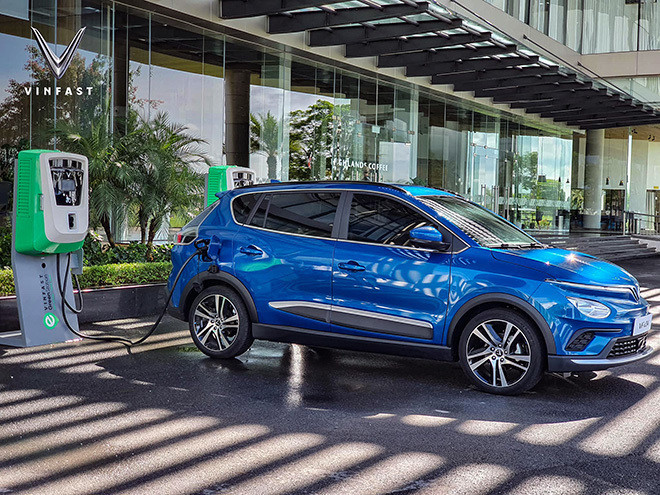
The increase in manufacturing capacity is a major factor that has contributed to Vietnam’s development potential in the electric car market, which can be seen in the increasing number of petrol-run and electric car models for domestic consumption and export.
The latest report about the electric car market from KPMG Vietnam, EuroCham and Cho Tot Xe shows a strong rise in electric vehicles, which has opened a new chapter in Vietnam’s automobile industry.
In addition, free trade agreements between Vietnam and other countries have played an important role in promoting the growth of the industry. FTA (free trade agreement) membership allows Vietnam to access advanced knowledge and technologies, and opens up opportunities to cooperate with other markets to improve capability.
The report pointed out that favorable policies, including tax incentives, are very important to Vietnam as this encourages individuals and businesses to invest in technology, thus helping promote the electric car market.
“The Vietnamese electric manufacturing industry is witnessing a strong convergence of many favorable factors, from government-offered preferential policies and increasingly high demand from consumers to rapid technology changes, laying down a foundation for groundbreaking projects in the future,” said Nguyen Tuan Hong Phuc from KPMG Vietnam.
Analysts say that Vietnam’s automobile industry has been accelerated by several factors, including:
First, policies to promote green economy and create favorable conditions for the use of electric cars. Second, demand increase. Nearly 70 percent of people polled showed interest in electric cars, which shows considerable changes in consumption.
Third, expansion of two- and four-wheel vehicles. Both demand and supply of electric vehicles are on the rise with the presence of large manufacturers, including VinFast, Hyundai, Toyota, Kia and BYD.
The report provided in-depth analyses about consumer behavior, the major factor that determines electric vehicle purchasing power.
Gen Z consumers, or those born from late 1990s to early 2010s, and Millennials consider buying electric vehicles, which shows their interest in durability and high technology.
In addition to basic features, durability, performance, and convenience, consumers aged 35-44 pay attention to the resale value of cars, a priority put above post-sale services.
The development of charging station networks is also a key factor encouraging the use of electric cars.
Tuan Nguyen